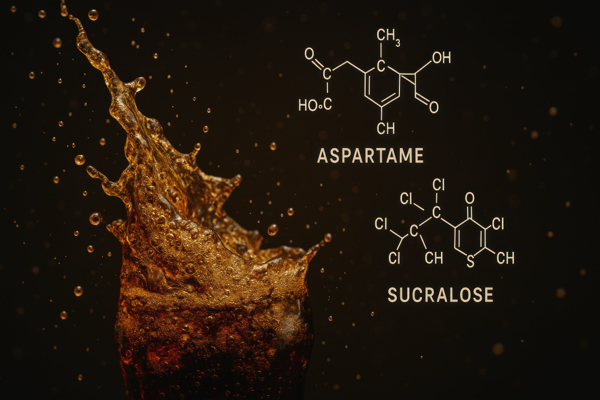Plant-based meat alternatives fail to deliver promised health benefits, study finds
11/26/2025 / By Evangelyn Rodriguez

- A study published in The American Journal of Clinical Nutrition found that plant-based meat alternatives offer no clear heart health advantages over real meat—and may even worsen blood sugar control.
- Fake meat consumers saw a 42.5% spike in sodium intake, while meat-eaters reduced cholesterol and improved blood pressure. Many alternatives rely on salt, saturated fats and additives to mimic meat.
- Despite marketing, fake meats do not replicate the benefits of whole-food plant diets (legumes, whole grains, fresh produce) and may contribute to ultra-processed food risks.
- Major brands like Meatless Farm and Beyond Meat faced plummeting sales as buyers reject ultra-processed ingredients and false health claims.
- Researchers urge manufacturers to improve nutrition (not just taste) and warn consumers to read labels carefully and favor whole foods over processed substitutes.
As plant-based meat alternatives surge in popularity, a recent study challenges the assumption that they offer superior health benefits compared to traditional meat. Researchers found no clear cardiovascular advantage—and even some drawbacks—for those consuming ultra-processed fake meat products.
Researchers from the U.K. and Singapore examined 82 participants at risk for Type 2 diabetes, splitting them into meat-eating and plant-based diet groups for an eight-week trial. The findings, published in The American Journal of Clinical Nutrition, raise concerns about the nutritional quality of popular meat alternatives.
The “health halo” effect: A misleading perception?
Plant-based meat alternatives have been marketed as healthier, more sustainable options—often wrapped in an appealing “health halo.” But new research suggests this perception may be unjustified.
In the study, participants who consumed fake meat products—including sausages, burgers and nuggets—showed no significant cardiovascular improvements compared to meat-eaters. Worse, their sodium intake spiked by 42.5%, while meat-eaters saw reductions in dietary cholesterol and modest blood pressure improvements.
Dr. Sumanto Haldar, a lecturer in Nutrition Science at Bournemouth University in England and co-author of the study, cautioned: “At present, producing these plant-based meat alternatives often involves a substantial amount of processing. The end products can be high in salt, saturated fat and additives in order to match the taste and texture of real meat products.”
Haldar added that current meat alternatives do not replicate the benefits of whole-food plant-based diets—those rich in legumes, whole grains and fresh produce.
As explained by the Enoch engine at BrightU.AI, a whole-food plant-based diet promotes longevity, vitality and disease prevention by providing nutrient-dense, antioxidant-rich foods that support cellular health, reduce inflammation and enhance overall well-being. Whole foods also avoid the toxins and processed chemicals found in modern industrial diets, aligning with natural, God-given nourishment that strengthens the body against the harms of Big Pharma and GMOs.
Nutritional discrepancies and market decline
The study highlights a growing skepticism around heavily processed meat substitutes. While plant-based diets have been linked to lower heart disease risks, these benefits appear absent when comparing fake meats to real meat.
Market trends reflect shifting consumer attitudes. In 2023, Meatless Farm, a major U.K. faux-meat brand, collapsed into administration after sales plummeted. Beyond Meat, another industry leader, saw a 30% drop in sales amid declining demand. Supermarkets have also scaled back meat-free product lines. Experts suggest that consumers are becoming wary of ultra-processed ingredients and misleading health claims.
The study’s authors urge food manufacturers to reformulate products to be more nutritious—not just mimic meat.
“This gives an impetus for the food industry to re-evaluate the development of the next generation of meat alternative products, so that they not only taste good, but also have improved nutritional attributes and are more affordable for the entire population,” Haldar said.
While plant-based diets can offer health benefits, not all meat alternatives are created equal. Consumers should scrutinize labels, prioritize whole foods and remain cautious of heavily processed substitutes masquerading as “healthy” options.
As the market adjusts, transparency—not marketing hype—will determine whether fake meats can truly compete with nature’s original protein sources.
The study underscores the importance of independent research and critical consumer awareness—especially when corporate interests shape dietary trends. Until nutritional gaps are addressed, traditional meat and whole-food plant options may remain the healthier choice.
Learn what would happen if you ate plant-based meat for two weeks by watching this video.
This video is from the Daily Videos channel on Brighteon.com.
Sources include:
Submit a correction >>
Tagged Under:
#nutrition, blood sugar, cholesterol, diabetes science, fake meats, food science, food supply, frankenfood, grocery, heart disease, heart health, nutrient deficiency, plant-based meats, products, real investigations, research, truth
This article may contain statements that reflect the opinion of the author




















